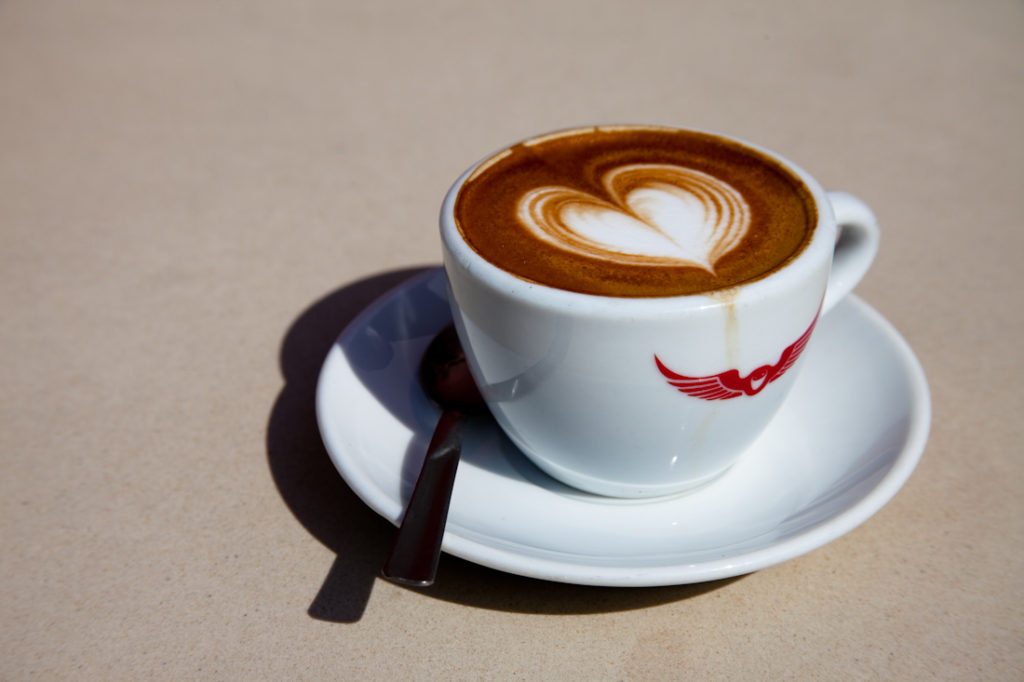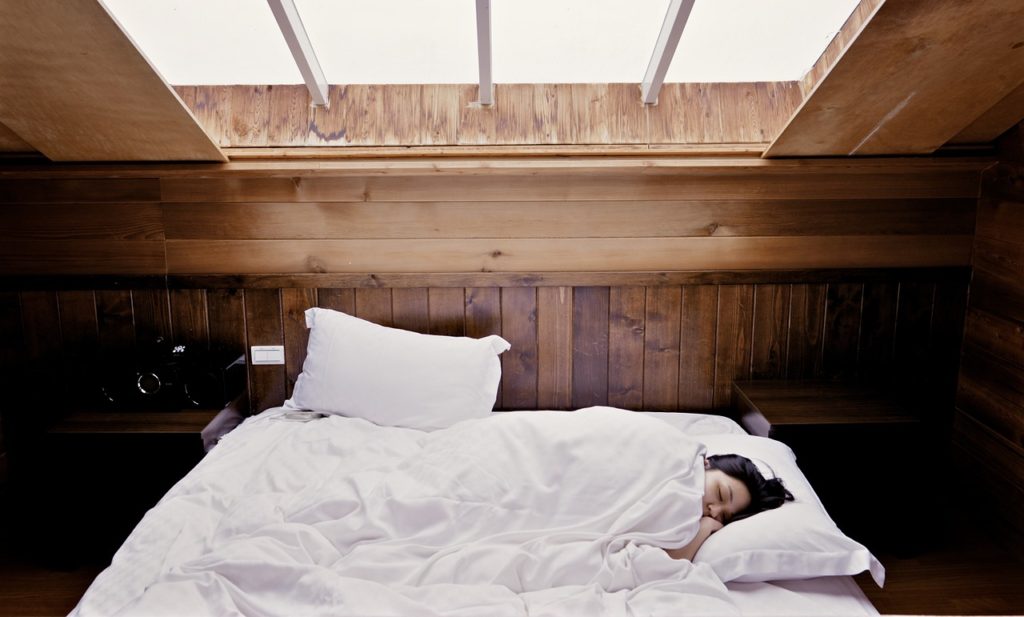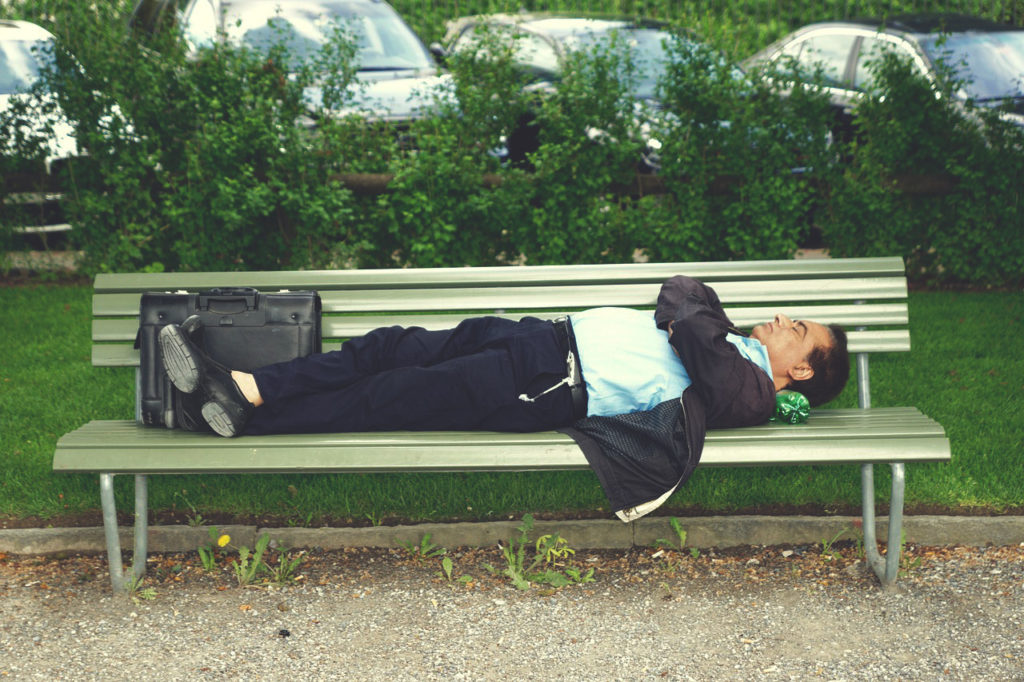If you’re like me, having the morning cup of joe is a daily (and mandatory) ritual. We’re in good company, as more than 60% of Americans reportedly drink coffee every day, drinking an average of 3 cups daily.1 Caffeine is an effective stimulant, and the world’s most widely used drug. Most of the caffeine we consume comes from coffee, but it is also found in sodas, teas, energy drinks, pre-workout supplements, among others.
When I give classes about insomnia or meet with clients individually, I definitely do talk about caffeine and how it can exacerbate sleeping problems, and I usually do a quick assessment of how much caffeine the person is consuming on a regular basis. Caffeine has a relatively long half-life, (usually about 5-6 hours) which means that it takes your body a long time to metabolize the substance, and it stays active in your body. The general guidance regarding caffeine is to stop consuming caffeinated beverages around early afternoon, say 2-3pm, so that it is less likely to affect you around your bedtime. Of course, individuals have differing levels of sensitivity to caffeine, so you may need to experiment with adjusting that time earlier or later.
I rarely ever advise a client to cut out coffee altogether, and I am quick to point out that I am a huge fan of coffee (and sometimes I’ll admit to having entered what could be construed from the outside as ‘coffee snob’ territory over the years of brewing and consuming this beverage) and am in no way interested in taking away their right to enjoy a cup of medium-roast arabica. However, caffeine is obviously a stimulant and has a significant potential for being disruptive to sleep onset, depending on the quantity consumed and time – so it is important to be aware of the effects and consider making changes as necessary.
Experimenting
I generally like to frame behavior changes as ‘experiments’ because it makes it a bit more palatable for a person to agree to, and also because behavior changes truly are experiments – they are made with the intent of seeing whether they result in certain desired outcomes. When we’re talking about improving sleep, I like to point out that there are many variables that can affect sleep, and that optimizing each of the variables makes it more likely to result in improved sleep. And, once we figure out whether a certain variable affects sleep at all, the client can make an informed decision whether or not to keep the behavior change.
To bring it back to caffeine, if a client drinks a lot of coffee, 3+ cups a day, has caffeine later on in the day, is sensitive to caffeine, etc., I may encourage them to try having the last cup earlier in the day, or cutting back, or keeping a more consistent routine. In certain cases, complete detox may be appropriate and helpful for a temporary period. On the other hand, I may even advise a client to utilize caffeine to fight daytime sleepiness or to augment alertness levels. It’s also always helpful to be educated and informed about caffeine content, so I recommend getting familiar with a list like this of caffeine content in various drinks.2
Best time to drink coffee
By now it should be clear that I personally enjoy coffee, and that I approach recommendations regarding caffeine use with nuance and not simplistic rules. I don’t like seeing ‘sleep hygiene rules’ that give blanket prohibitions against caffeine. I think that caffeine can be helpful with attention and alertness and that the effects on disrupted sleep can be mitigated by experimentation and a bit of common sense.
A few years ago I came across some research that changed my own coffee drinking habits permanently. I had been drinking coffee at the wrong time – in fact, the worst time to drink coffee – and you probably are too. You see, our circadian rhythms direct our bodies to produce a hormone called cortisol in the mornings to increase alertness and to feel more awake. Cortisol levels are highest between 6am and 10am, and thus this is the worst time to regularly drink coffee as not only is the caffeine less effective at that time but it causes your body to produce less cortisol and rely more on the caffeine.3 Therefore, if you want to increase the effectiveness of the coffee4 and to decrease the potential for physiological dependence and withdrawal symptoms, try to wait until 9:30am or 10am to drink your first cup of coffee.
I have been doing this for a few years now, and have been very happy with the results. When I first tried it, I was merely curious about boosting the effectiveness of the caffeine, but what really got me to permanently adopt a later coffee schedule is that it completely eliminated my caffeine withdrawal headaches. Now I can skip a day or several days of coffee without any headaches, whereas before I would get a headache by late morning if I didn’t have a cup of coffee at my usual time. For me, this is totally worth it, and I encourage you to give it a shot as well.
So there are my thoughts on coffee and sleep, and the approach I take with my clients. Of course, addressing the insomnia and mitigating any potential effects from caffeine remain a priority, but that doesn’t mean we need to take a black and white approach. Caffeine can be very helpful, when used in moderation and at the right time of day, and there is no doubt that coffee is one of the most wonderful beverages on the planet, especially if care is taken in the grinding and brewing of freshly roasted, high quality beans. But that’s another topic for another time. Enjoy your cup!
- National Coffee Drinking Trends 2017, National Coffee Association
- https://www.caffeineinformer.com/the-caffeine-database >>
- https://www.washingtonpost.com/news/wonk/wp/2015/06/01/when-to-drink-coffee-so-you-get-the-most-out-of-the-caffeine/ >>
- https://www.fastcompany.com/3020911/this-is-the-best-time-to-drink-your-coffee-according-to-science >>


